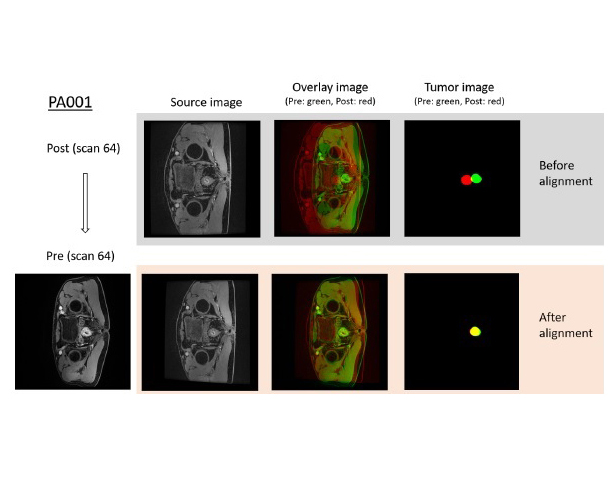Connected Health
Image Processing Platform for MRI-based Rectal Cancer Diagnosis
Prostate cancer is one of the most common types of cancer in men, especially those over 65 years old. In the United States, it is estimated that over 190,000 new cases of prostate cancer will be diagnosed, and around 33,000 deaths from prostate cancer, in 2020. Although some types of prostate cancer can grow slowly and locally, thus requiring no treatment, other types of prostate cancer are more aggressive and can grow quickly, thus requiring treatment. Neoadjuvant chemoradiotherapy (nCRT) and total mesorectal excision (TME) are standard treatment of prostate/rectal cancer. Since the quality of life is low for patients undergoing TME, it is preferable for the physician to administer nCRT treatment.
By monitoring the tumor response using MRI images taken before and after the nCRT treatment (within a time period), the physician would decide further treatment, as needed. It is important to provide the physician with aligned MRI images where the tumor is registered at the same location for all MRI images. Deep-learning based algorithms have been developed for prostate cancer detection and diagnosis with promising results. These algorithms and the corresponding dataset assume that the MRI images have a standard pose, taken from an ideal lab environment. In many cases in the field where the patients are not in an ideal position, the MRI images need to be aligned to the ideal portrait position. Other challenging situations include different MRI image types taken at different times (T1 vs. T2) and image structure changes from weight loss/gain in the patient. We propose to develop an image processing platform for rectal cancer MRI images to address these issues.
